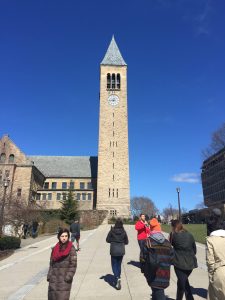Is your teen planning to major in business and having difficulty deciding which colleges should be on their list? Keep reading for my top three tips for finding the right college for your teen who wants to pursue a career in business.
Focus on “Business” Majors in the Top Undergrad Business Schools
If you search online for “business majors” you will come up with a list of thousands of colleges, so when students say they’re interested in business, I ask them, “What are the specific areas of business that interest you?” There are many different functional areas within the business realm, such as:
- accounting
- marketing
- finance
- operations
Looking specifically at one of these areas will help guide them to different sets of colleges. If your teen is looking into a liberal arts college that doesn’t offer business, they could try looking into economics which will touch on business. Again, the first step is thinking about the functional area of interest.
Research Summer Programs for Business Majors
One of the key things I recommend to students who are interested in business is to consider a summer program to learn more about specific areas of business, such as programs focused on investment banking, finance, marketing or entrepreneurship. There are countless summer programs out there, many virtual.
What Does the Program Offer?
After your teen considers their functional area of interest and looks into summer programs, my next tip would be to look at what the college programs offer. For example, the University of Southern California has an international program in different areas of business that allows for the opportunity to study abroad. There could also be organizations within the college to help get your teen more involved and around other students in the same field.
Side Note: Another thing to consider when your teen is fine-tuning their list of colleges is the math requirements for different programs; many require that you take calculus in high school. If they’re not on track for that, it can hurt their chances of being admitted. For some business programs, there may be an option to test out of that course. If that is the case, make sure they take that test by the end of junior year.
Recap for Finding the Right College for Business Majors
If your teen is considering majoring in business, they should first look at the functional areas within business to find their area of interest. Narrowing their interests down will help with finding colleges that are a good fit. Secondly, your teen should look into summer programs as a viable way to learn about the functional areas of interest. Finally, look at what the colleges offer to support your teen’s success so they can thrive while they’re there and have rich career opportunities afterwards as well.
Junior year is a critical year for the college admissions process. I want to make sure that your teen is successful throughout the school year and not overwhelmed by this process. If their initial list is too overwhelming, your teen may lean towards popular colleges they’ve heard of before and that’s not going to serve them well.
Grab your copy of our College Prep Toolkit now to ensure your success in helping your teen navigate through this school year










